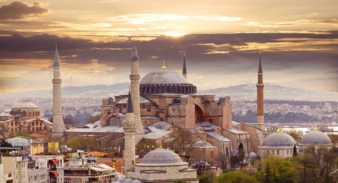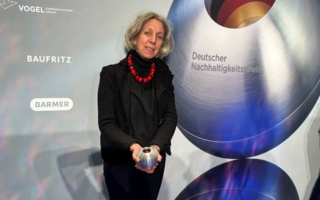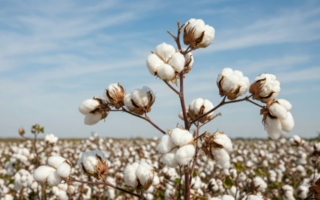28/10/2015 — auf Deutsch lesen
Huge uncertainties
The severe problems facing Greece, Russia and Syria are having a negative effect on the Turkish textile industry. No sooner has it survived the deep recession in Western markets than it encounters one crisis after another. The pressure from these crises is harming the once flourishing international business.
The Greek calamity had already thrown a dark shadow across export-orientated Turkish businesses. After exports to Greece had risen by 9.1 percent to 116m US Dollar the previous year, they fell back by 19 percent in the first five months of this year, according to Hikmet Tanriverdi, President of the Istanbul Textile and Apparel Exporter Associations.
Seref Faya of the Turkey Clothing Manufacturers’ Association expressed his concern when referring to the effects of the Greek crisis: “The euro is losing value against the dollar and that is having a negative effect on our exports.” Some of the Turkish exhibitors, both at the Heimtextil trade fair in Frankfurt and at Texworld in New York, disclosed to textile network that they continued to be very worried about the Greek economy. At Texworld in New York, however, Turkish exhibitors were confident about the global market situation.
Gul Sen, Marketing Manager of textile manufacturers HMK Tekstil, who are based in Bursa, Turkey, and are exhibiting here for the first time, revealed to textile network that her company could supply cotton and polyester fabrics according to specific customer requirements. “We produce chiefly for Europe. Russia has become more difficult for Turkish suppliers but Iran is opening up. We are optimistic that Iran’s imports from Turkey will increase.”
Ken Mulligan is based in New York and represents several Turkish textile companies in the USA; he believes buyers are importing less than they used to. “And they’re haggling even more over the price. It’s putting my suppliers under even more pressure.” Necmi Demirel, Production Manager at the Turkish company Aker Tekstil of Istanbul, comments: “We produce fabrics for knitted goods, for which we use synthetic fur as well as mixed wool.”
The raw materials they use come from Turkey although some grades of polyester are imported. Aker Tekstil exports primarily to Europe, the USA, Japan and Russia. Like other Turkish companies, it is suffering as a result of Russian sanctions, which are affecting Turkish exports of textiles and clothing.
“In the past year we’ve seen a serious crisis with Russia,” says Giyasettin Eyyupkoca, Chair of the Laleli Industrialists and Businessmen’s Association (LASIAD) in Turkey. “We have responded to this in several ways. But Russia seems to be on the road to recovery and we’re expecting to make good our losses during the forthcoming season.”
The Laleli district, in the Istanbul metropolis, is the heart of the textile trade and home to around 8,000 businesses and every street and avenue is lined with shops. From accessories to women’s fashion and children’s clothing, to sporting goods, there is a wide range of apparel for any taste. Many of the businesses specialize in wholesale. The Laleli Fashion Shopping Festival first took place in 2012.
Many visitors from Russia and the CIS do their shopping here. August’s annual Laleli Fashion Shopping Festival attracts visitors to Istanbul from all over the world. The importance of the Turkish textile and clothing industry is closely bound up with the industrialisation of the country.
Today, Turkey is one of the top ten cotton-producing countries and is ranked third, after India and Syria, in the organic production of cotton. The Turkish clothing industry is the seventh largest in the world, with an estimated share of 3.4 percent, and is the third largest supplier to the EU. Like neighbouring Syria, where the terrorist group ISIS controls almost three-quarters of the country’s cotton production, Turkey is suffering and is fearful of the current situation. It is entirely conceivable that Turkish wholesalers are buying cotton at heavily reduced prices from a cash-strapped ISIS, and that their cotton is ending up in Turkey. ISIS controls parts of Syria that are very close to Turkey.
According to its most recent statements, Turkey no longer wishes to buy cotton from Syria. Experts in the US presume that this is in response to American pressure. The war in Syria, which has already been going for four years, has led to a reduction in cotton production. Before the war, Syria was producing some 600,000 tonnes of cotton a year; this volume has now shrunk to 70,000 tonnes, of which (according to official figures) 3,000 tonnes went for export.
It has turned its attention to Africa and is now planning to build up an integrated textile complex in Relizane, Algeria, in partnership with the Algerian industry. A contract has already been signed by Mohamed Bouchama, head of the national clothing industry group CH, and the Turkish group Taypa Mesut Toprak. This giant project, on which work will start in November, will include at its heart eight integrated factories focusing on the production of fabrics and hosiery, as well as a fabrics training school, a business centre and other establishments. Production is destined both for the domestic (40%) and export (60%) markets.
[Manik Mehta]





